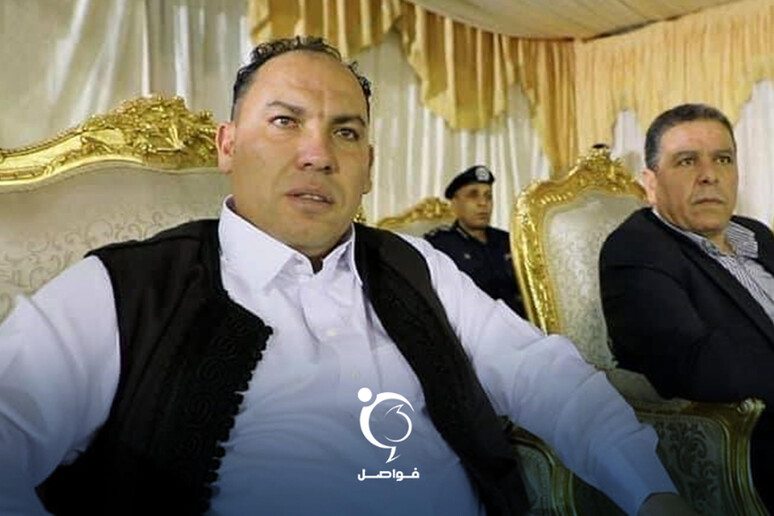The Tribunal of Ministers has started
investigating the case of Libyan judicial police chief Osama
Almasri, who was released on a technicality and flown back home
on a secret services plane two days after his January 19 arrest
by Italian authorities on an International Criminal Court (ICC)
warrant on charges of war crimes and crimes against humanity.
Daily newspapers Corriere della Sera and Repubblica reported on
Wednesday that the tribunal has requested a series of documents
from the justice ministry, Rome's appeals court, which ordered
Almasri's release on a technicality, and the State attorney's
office at the appeals tribunal.
The documents are necessary to probe what happened between the
arrest on an ICC warrant of the Libyan general at a hotel in
Turin at dawn on January 19 and his return to Tripoli on a State
flight following his release by the appeals court in Rome on
January 21.
The release was ordered after Justice Minister Carlo Nordio did
not respond to the tribunal's request to back the arrest.
Premier Giorgia Meloni, Nordio - over his alleged refusal to
perform public acts - Interior Minister Matteo Piantedosi and
Cabinet Undersecretary with the intelligence brief Alfredo
Mantovano are under investigation in the case after attorney
Luigi Li Gotti filed a criminal complaint against them.
Li Gotti, a former centre-left justice undersecretary and
earlier a neo-Fascist party member, filed the complaint to the
State Attorney's Office in Rome on presumed charges of aiding
and abetting and embezzlement, due to the use of a secret
services flight to take Almasri back to Libya.
The complaint was notified to the government officials and
transmitted by Rome chief prosecutor Francesco Lo Voi to the
Tribunal of Ministers under a constitutional law that provides
for activities of investigation involving cabinet members to be
undertaken by the special court and not by State attorneys.
The court documents set to be examined by the Tribunal of
Ministers include communications between the court and the
justice ministry, the Italian embassy in the Netherlands and the
ministry and a draft document prepared by justice ministry
officials which was meant to keep the Libyan general in prison
but was never delivered to the judges who needed to rule on his
detention.
Discussing the controversial technicality that led to Almasri's
release during a report to Parliament on the case earlier this
month, Nordio said the ICC arrest warrant was faulty, which made
it impossible for him to immediately respond to the request
issued by Rome's appeals court ahead of its decision on whether
to validate Almasri's detention or release him.
The justice ministry handles all relations with The Hague-based
court.
Cabinet Secretary Alfredo Mantovano, meanwhile, defended the DIS
intelligence department after it sued two Italian dailies over
their reports on ties with Libya, while expressing alarm about
the situation in the North African country.
"I find it strange that today they are chasing after things that
are half way between fiction and slander and there is little
interest in other things, such as the injury of a minister of
the Libyan government," Mantovano said referring to an
assassination attempt on the Minister for Cabinet Affairs Adel
Jomaa.
"This portrays a truly difficult, complex situation.
"So the intelligence services and the government are currently
following this situation with concern, trying to evaluate the
repercussions for Italy and Europe and trying to ask ourselves
what Europe and Italy can do to support Libya even more".
The DIS department, which coordinates Italy's intelligence
agencies, said Wednesday that it is taking legal action against
two newspapers, 'Il Foglio' and 'L'Unità', over what it
described as "false and defamatory" articles they published. The
department referred to an article by Luca Gambardella published
by Il Foglio on Tuesday which said Giovanni Caravelli, the
director of the AISE intelligence agency, recently went to Libya
to inform the authorities there about a list of Libyans wanted
by the International Criminal Court (ICC).
It also referred to a piece by Piero Sansonetti in Wednesday's
L'Unità with a headline that said "Almasri's informer is the
head of our 007s".
"It is an anomaly that freedom of information can turn into
freedom to libel," Mantovano said.
"If you accuse an intelligence official, such as Prefect
Caravelli, of spying for Libya on the activities of the
International Criminal Court, you are accusing him of a crime.
"This explains why, precisely because of the asymmetries, hence
the limits of public exposure that intelligence service has, the
only defence is to go to court".
ALL RIGHTS RESERVED © Copyright ANSA











